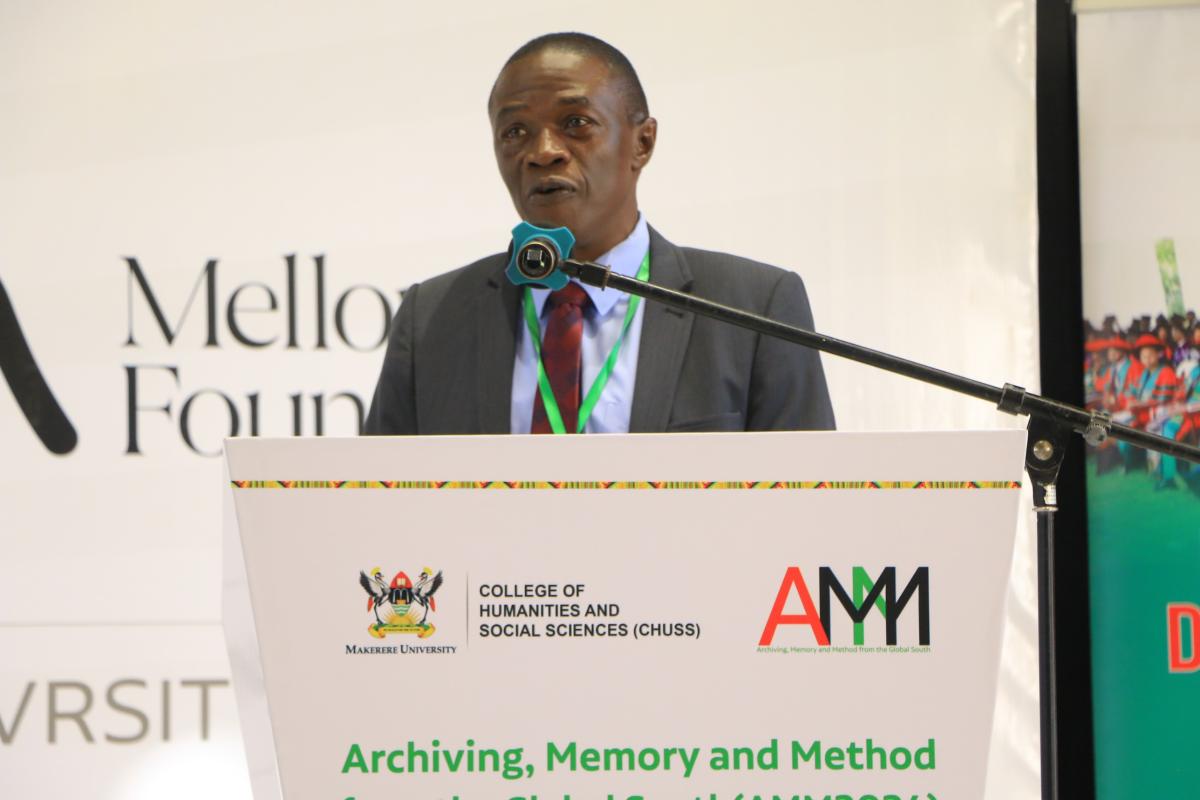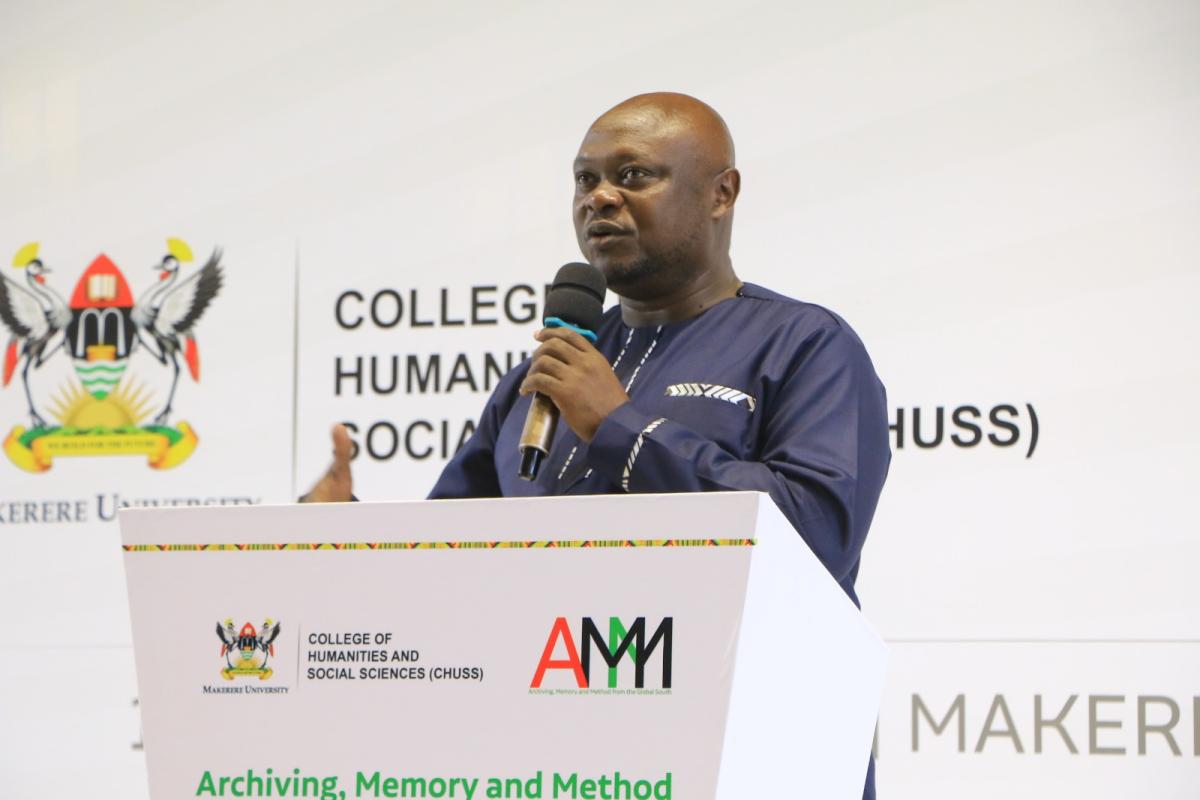
The international conference on "Archiving Memory and Method from the Global South," held from October 17-19, 2024, at Makerere University, concluded with a call on African governments to enact policies on archiving and integrate archival education into school curricula. The event gathered global scholars, archivists, and cultural heritage professionals to reflect on the evolving methods and challenges of memory preservation in the Global South.
In addition to advocating for reforms in educational institutions, scholars were urged to pay attention to post-independence archives and minority languages as valuable sources of information, rather than solely focusing on colonial archives. Researchers were encouraged to view archives not as static collections but as living entities that evolve over time, subject to the biases and limitations of their creators. They emphasized the importance of utilizing various sources and triangulating evidence for accurate interpretation.
The call was made by Associate Prof. David Luyombya while delivering a keynote address on, "Archiving Memory, Method from the Global South,". Prof. David Luyombya who is the head department of Records and Archives Management in the East African School of Library and Information Sciences at Makerere university, underscored the value of archives as custodians of collective memory. He highlighted the role of archives in shaping the understanding of the past and influencing future generations. "It is our collective responsibility—scholars, archivists, institutions, and governments alike—to ensure that these memories are preserved with care, integrity, and accessibility," he stated.

Prof. Luyombya questioned the fundamental understanding of memory and its preservation, asking, “What is memory? Where is it located? Who is responsible for preserving it?” He described memory as the foundation of institutional and cultural identity, crucial not only for understanding the past but also for shaping future trajectories. He emphasized that memory, through rituals, oral traditions, written records, or digital archives, forms the bedrock of society’s collective knowledge.
Technological Advancements in Archiving
Delving into the conference’s core themes—archiving, memory, and method—Prof. Luyombya explored the rapid advancements in archival technology. He explained that memory capture has evolved from prehistoric cave paintings to modern-day digital images, augmented reality, and artificial intelligence. "Today's technologies like 3D scanning, digital repositories, and AI are revolutionizing the ways we archive our histories, making it possible to safeguard physical, audio, and even digital memories in ways that were unimaginable a few decades ago," he said.
While these advancements have provided more secure and accessible means of memory preservation, Prof. Luyombya cautioned that the Global South lags significantly behind the Global North in adopting these technologies. He pointed out that paper-based archives still dominate in many African countries, leaving them vulnerable to risks like fire, floods, climate change, and even war.
Challenges and Threats in the Global South
The keynote address highlighted the disproportionate challenges faced by the Global South in preserving archives. Prof. Luyombya referred to climate change as a significant threat, explaining that increasing temperatures and rising sea levels endanger physical archives, while conflicts and wars often result in the deliberate destruction of cultural heritage—a phenomenon he termed "memoricide." He drew parallels to the ethnic conflicts in Rwanda and Bosnia, where archives were deliberately destroyed to erase cultural memory.
"The Global South is at a critical juncture where its archival heritage is not only under threat from natural disasters but also from human actions aimed at erasing collective memory," Prof. Luyombya warned.
Strategies for Protecting Archival Heritage
In response to these challenges, Prof. Luyombya outlined a three-tiered approach—local, national, and international strategies—that could help safeguard the archival heritage of the Global South.
Prof. Luyombya emphasized the importance of community involvement in the preservation of memory. He suggested that local communities should be trained in archiving techniques, especially in areas rich in oral traditions. "By empowering local people to document and preserve their own stories, we can create a decentralized but resilient memory archive," he stated. Furthermore, local organizations should invest in digitizing records and collaborating with local universities to ensure that expertise in archival science is developed within communities.
At the national level, Prof. Luyombya urged governments to prioritize the establishment and strengthening of national archives. He cited Uganda's National Records and Archives Centre (UNRAC) as an example, noting its progress in digitizing collections. He called for more investment in infrastructure to support digital archiving and data preservation. "Governments must provide the necessary funding, training, and legal frameworks to ensure archives are not only well-maintained but also accessible to the public and researchers," he said. National policies should also integrate archival education into school curricula, instilling the importance of memory preservation from a young age.
Recognizing the global significance of archival heritage, Prof. Luyombya advocated for stronger international cooperation. He called for partnerships between institutions in the Global North and Global South to exchange expertise, share technologies, and provide funding for digitization projects. "International organizations, such as UNESCO, can play a vital role in preserving global heritage by offering technical and financial support, as well as establishing standards for archival preservation," Luyombya noted. He further recommended that international conferences like the one hosted by CHUSS should be expanded to foster greater collaboration and knowledge sharing across borders.
Prof. Luyombya concluded his address by stressing the urgency of adopting these strategies to protect archives from deterioration and destruction. "The integrity of archives is paramount to our understanding of history and identity. Without well-preserved archives, our societies lose valuable memory that shapes both the present and future," he remarked. He urged scholars, archivists, and governments to take immediate steps toward securing the future of archival collections, particularly in regions where resources are scarce.
The "Archiving, Memory, and Methods from the Global South" conference, organized by CHUSS in collaboration with the Mellon Foundation, marks the culmination of a three-year project focusing on the intersection of archives, communities, institutions, and academia. The event is poised to leave a lasting impact on the archiving community, with discussions revolving around how to adapt archiving practices to the unique circumstances of the Global South.
Prof. Eric Awich Ochen Hails Success of International Archiving Conference
While officially closing the conference, Assoc. Prof. Eric Awich Ochen, Deputy Principal of Makerere University’s College of Humanities and Social Sciences, praised the success of the international "Archiving, Memory, and Methods from the Global South" conference, commending participants from 14 countries, including South Korea, the UK, and the US, for traveling to Uganda.
“We thank you very, very much for creating time to travel all the way… to participate in this international conference and interact with us,” Ochen said. He also emphasized Uganda’s rich cultural diversity, highlighting its 65 languages and numerous subcultures. He noted that music, dance, and drama are integral to the everyday lives of Ugandans, saying, “For my community, people dance and sing when they are happy… when they are sad… when people are being born, and when people are being buried.”

Ochen stressed the importance of conferences as spaces for knowledge sharing and collaboration, encouraging participants to foster friendships that could lead to future research projects. He invited attendees to explore Uganda and consider making it their home, describing the country as both friendly and affordable. To those leaving, he extended his best wishes for a safe journey home.
Principal Investigator Applauds Global Collaboration at Archival Conference
Prof. Josephine Ahikire, the Principal Investigator for the "Archiving, Memory, and Methods from the Global South" project, expressed gratitude and appreciation during the closing remarks of the international conference held at Makerere University.
Reflecting on the three-day event, she commended the diverse participation, which included scholars and experts from 14 countries across Africa, Asia, Europe, and Latin America.

"For me, this has been a wonderful experience," Prof. Ahikire stated. "We truly have an international audience, and seeing the interest in archiving and memory preservation across different regions is inspiring."
She emphasized the importance of "facilitation" in advancing archival work and preserving history, noting that it extends beyond financial resources. "Facilitation does not mean money," she explained. "It means taking charge of ourselves, our history, and our identity."
Conference Convener Highlights Achievements and Future Directions
Dr. Charlotte Mafumbo, the convener of the "Archiving, Memory, and Methods from the Global South" conference, celebrated the successful conclusion of the event, which brought together participants from various countries, including international scholars and representatives from publishing houses.
In her closing remarks, Dr. Mafumbo acknowledged the hard work of the conference preparatory team and the various stakeholders who contributed to the event's success. "We need to appreciate ourselves for the incredible engagement that has seen 90 activities, including keynote speeches, paper presentations, roundtables, and panels," she stated, extending special thanks to the Mellon Foundation for its support.

Reflecting on the key takeaways from the conference, Dr. Mafumbo emphasized the urgent need to address the threats facing archival systems as highlighted by Dr. Luyombya earlier in the event. "We must be intentional about investing in archives at both national and community levels," she noted, underscoring the importance of safeguarding the integrity of these vital resources. She also called for the establishment of a national policy on archiving and a national book policy to bolster preservation efforts.
Looking ahead, Dr. Mafumbo posed a critical question regarding the future of the discussions and papers generated during the conference. "What next? After this wonderful gathering, what plans do we have to generate a policy document that contributes to national debates on the importance of archiving, memory, and methods?" she asked, encouraging participants to consider the long-term impact of their contributions.
In closing, she wished all attendees a safe journey home and expressed gratitude for the collective effort in making the conference a significant milestone in the field of archiving.
